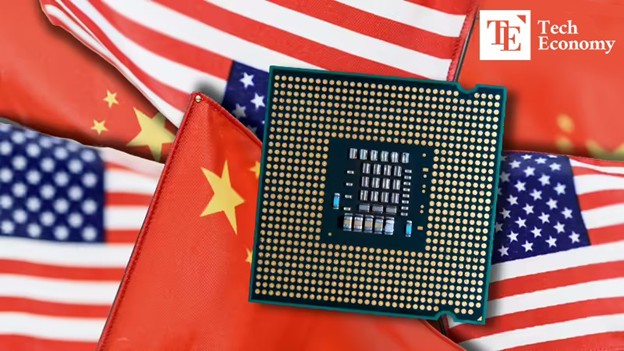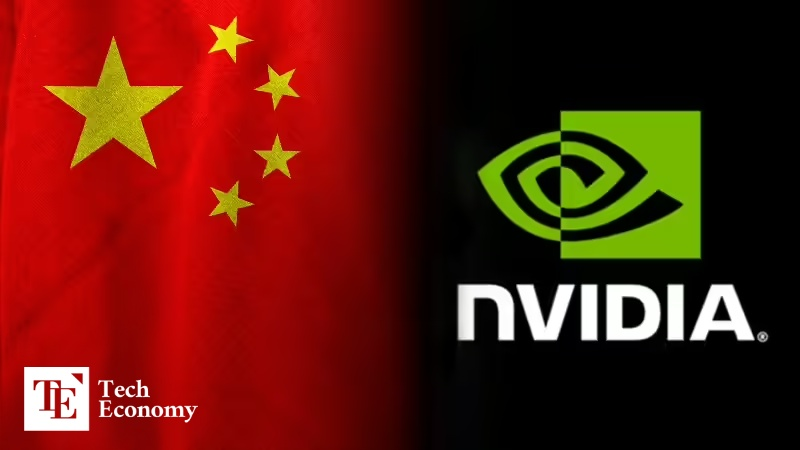U.S. to Embed “Location Trackers” in AI Chips Rerouted to China
Input
Modified
U.S. to deploy tracking tools to detect unauthorized AI chip transfers China’s semiconductor security concerns become reality U.S. Congress has been discussing mandatory location tracking for chips

Reports have revealed that the U.S. has been tracking the locations of advanced American-made semiconductors entering China. While Congress has been discussing mandatory location tracking for chips, the government has already been quietly implementing monitoring measures behind the scenes.
U.S. Tracks Movement of AI Chips
On August 13 (local time), Reuters reported—citing sources—that the U.S. government has used location-tracking devices on certain shipments to detect the diversion of artificial intelligence (AI) chips to China. Tools long used to monitor exports of restricted products such as aircraft parts have, in recent years, also been applied to crack down on the illegal transfer of semiconductors. While Washington restricts exports of advanced chips and other technologies to China in an effort to curb its military modernization, smuggling of high-end U.S. AI chips into the country has continued.
According to the sources, tracking devices were attached to server shipping boxes, inside packaging, and even on the servers themselves. One source said they had seen photos and videos of chip resellers removing the trackers from Dell and Supermicro servers, adding that some devices were as large as a smartphone. It remains unclear how extensively these trackers have been used in investigations or when the U.S. began deploying them. Reuters noted that such measures could help support lawsuits against individuals and companies profiting from violations of U.S. export controls.

China’s Longstanding Wariness of Nvidia Chips
China has long voiced concerns over potential security risks tied to importing U.S.-made AI chips. On August 12, Bloomberg and other media reported that the Chinese government had recently instructed domestic companies to restrict the use of Nvidia’s H20 chips. Authorities also reportedly summoned major internet firms such as Tencent and ByteDance (parent company of TikTok) to explain their purchases of the H20 and to address concerns over data security risks.
According to Reuters, agencies including the Cybersecurity Review Office under the Cyberspace Administration of China (CAC) have, over the past few weeks, held meetings with companies such as Baidu and smaller tech firms. The CAC had earlier summoned Nvidia representatives on July 31, demanding explanations and documentation regarding location verification capabilities and remote deactivation functions—commonly referred to as a “kill switch”—in its chips.
In response, Nvidia’s Chief Security Officer David Reber wrote on his blog on August 5 that Nvidia GPUs contain no “kill switch” or “backdoor”—hidden access points or programs enabling unauthorized system or network entry—and that such features should not exist. However, as testimonies emerged indicating that some U.S.-made AI chips were indeed fitted with location-tracking devices, Nvidia’s assurances quickly lost credibility.
U.S. Congress Pushes for Chip Tracking Mandate
Notably, the U.S. government’s covert insertion of location trackers took place while lawmakers were still debating related legislation. Back in May, Reuters reported that Democratic Representative Bill Foster planned to introduce a bill requiring U.S.-made semiconductors—such as those produced by Nvidia—to include technology capable of tracking whether the chips end up in countries under export bans.
The draft bill called on the Commerce Department to establish detailed regulations within six months. Supporters argued that Nvidia chips already contain numerous features that could enable such tracking, and that the government should step in to formalize these capabilities. The bill also proposed a more stringent measure: preventing any AI chip without an export license from booting up entirely. This latter function would be more complex to implement than location verification, which is why lawmakers argued for starting the discussions early.
At the time, Representative Foster emphasized the need for legislation, citing credible reports of large-scale semiconductor smuggling. “This is a problem now,” he warned, “and at some point we will discover that China’s Communist Party or military is using these chips to design weapons and carry out AI operations.” The bill has drawn support from several Democratic lawmakers, including Raja Krishnamoorthi of the House Select Committee on the Strategic Competition Between the United States and the Chinese Communist Party, as well as some Republicans.





















